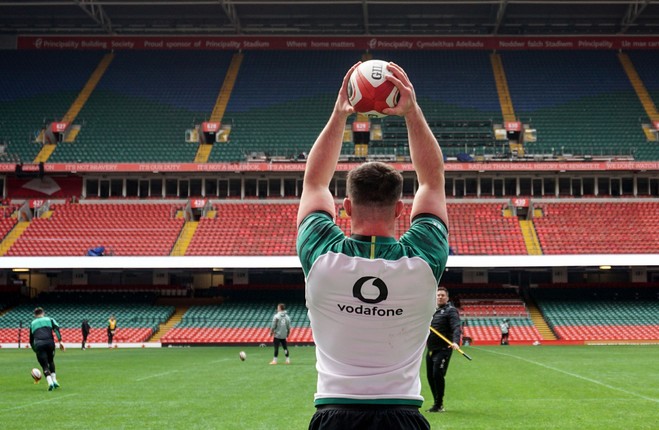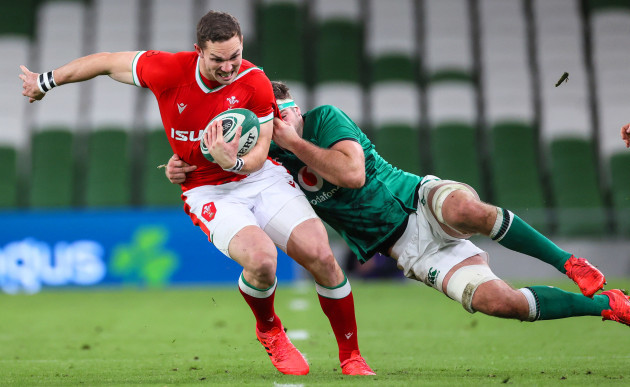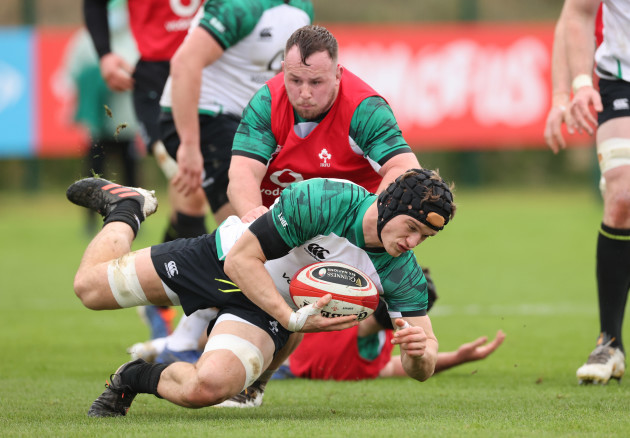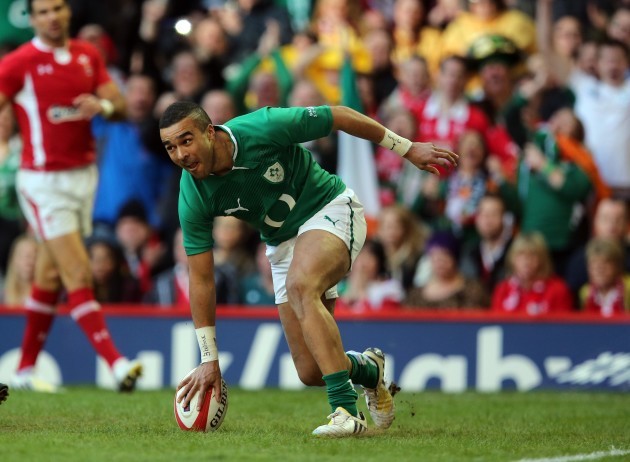Are Wales a spent force?
It certainly appeared that way in 2020 when they failed to beat any side other than Georgia and Italy. Since then, with the pressure mounting, Wayne Pivac has abandoned any pretence to build for the future by returning to the tried and trusted. Seven of this side are aged 30 or over. It’s the most capped Welsh team of all-time. Their coach needs them to deliver.
“The job is everything I was expecting,” Pivac said on Friday. “I’m representing a country that is very proud of their national team, very passionate, I wouldn’t want it any different. We know the pressure is building, but no one puts more expectation of results than the group themselves. This is what we do for a living.”
How long Pivac continues to make a living as Wales coach could depend on how this campaign goes.
In this regard, today’s game is the pivotal one. Win and a shot at respectability is theirs. Lose and they’ll likely be scrapping for a wooden spoon with the Italians.
At this stage, the Welsh are – to use Adam Jones’s words – ‘pissed off’ with being written off, all of which suggests there may be one last kick from the old warriors. The sense is they’ll perform today but the absence of so many key backs, Liam Williams, Jonathan Davies and Josh Adams – not to mention George North’s relocation to centre from the wing – will, at some point, hurt them.
“The autumn was used to build depth within the squad, expose some younger players,” hooker, Ken Owens said. “This competition is different, it’s about winning.”
You get the feeling they’ll win back some pride today – but not much more.
Has Andy Farrell picked the right team?
Plenty of people think he hasn’t, questioning Josh van der Flier’s physicality and James Lowe’s match sharpness. You only had to see how England’s Saracens contingent suffered from a lack of match practice yesterday to get an idea of the advantage of being battle-hardened ahead of an international.
Still, you also have to remember that while van der Flier and Lowe have failed to impress against England, they both have good memories of playing Wales. So, for that matter, does every Ireland player, two comfortable wins coming against the Welsh last year.
For those of us reared on a diet of misery in the second half of the ‘80s and the entirety of the ‘90s, it’s still something of a curiosity to hear how an Ireland coach could be under pressure after registering six wins from his opening nine games.
Think back to the 1990s. There wasn’t one calendar year when Ireland won more than five games. Expectation levels have clearly risen, hence why Farrell has had to deal with a bit of noise following an inconsistent 2020, when good performances against Wales (twice) and Scotland (in the autumn) were mixed in with some awful stuff against England (twice), France (in the second half) and Georgia.
Win today and a route to the championship becomes clearer, especially after Scotland’s win over England yesterday. Another defeat, though, will not be quietly received. People have become a little tired of hearing how good Ireland are at bouncing back.
Does home advantage still count?
Normally the pre-game chat in Cardiff revolves around the roof being closed. This time it is the effect of the doors getting locked. Minus crowds, can the Principality Stadium still be considered an intimidating venue?
The answer, evidently, is no. No more than Scotland benefited yesterday from the absence of a partisan English crowd, so too will Ireland profit from the knowledge that referee, Wayne Barnes, won’t have 70’000 Welsh voices berating him for making a contentious call.
“Play at the Principality Stadium and you will know all about that,” wrote Donncha O’Callaghan in his Times column. “When Wales are banging on the try line the noise is something you rarely experience. It is loud elsewhere but this is like the way you can tell the difference when your child is crying to raise the roof, or if there is urgent feeling behind the cry. The roar in Cardiff has an emotional timbre; it’s a primal desire from the pit of the crowd’s belly. They must crash over that line. In those moments you feel distinctly human, while trying to resist a force of nature.”
That won’t be an issue today. There is no crowd, therefore there is no roar; therefore there isn’t the same emotional advantage, ‘the 10-point start’ that a former Wales player referred to earlier this week.
Since rugby went behind closed doors, the number of away victories has increased significantly, something the rugby statistician, Stuart Farmer, wrote about last week, when he pointed out how victories by home sides in the Pro14 has decreased by 17 per cent since the league’s resumption, whereas in the Premiership, they are down by 10 per cent.
Look at Scotland. Prior to lockdown, they hadn’t won in Twickenham since 1983 or in Wales since 2002. Ireland’s wait for a championship win in Cardiff isn’t as long. The feeling remains it’ll end today.
The finishers
It was Eddie Jones who spun this line, that the team who finishes a game is more important than the one who starts it. At the time it seemed like a very Eddie Jones thing to say, gifting headline writers an easy soundbite.
Yet there is always comfort to be drawn from knowing you have a decent Plan B if your initial strategy is going nowhere. Andy Farrell has that. In Tadhg Furlong, he has a Test match Lion ready to come on. Then there is Dave Kilcoyne, arguably a better option these days than Cian Healy.
Iain Henderson is normally a nailed on starter in Farrell’s side – his place on the bench explained by his recent inactivity after injury. Still, you’d trust him to deliver a big 20 minutes if required, just as you’d place your faith in Jordan Larmour and Will Connors.
In contrast, the Welsh bench looks decidedly ordinary and while much has been made of their experienced starting XV, there is always a day in sport when an experienced team starts being called an old one.
Could this be today? If Ireland manage to play at a tempo they showed in their two meetings against Wales last year then the answer will be yes.
Are Ireland still reliant on Johnny Sexton?
The short answer is yes. “And at 35 that is an issue,” said Brian O’Driscoll on Off The Ball last year.
Should Sexton go down in this championship – and remember he has played only four games for Leinster this season, going off injured in three of them – then where is the evidence that Billy Burns, Ross Byrne or Jack Carty can fill that void? At club level, they have all proved their worth. But the Six Nations is unforgiving. The reality is that Farrell has to hope his captain comes through the next two weeks unscathed, at which point he’ll wrap him in cotton wool ahead for three weeks prior to the concluding games against Scotland and England.




